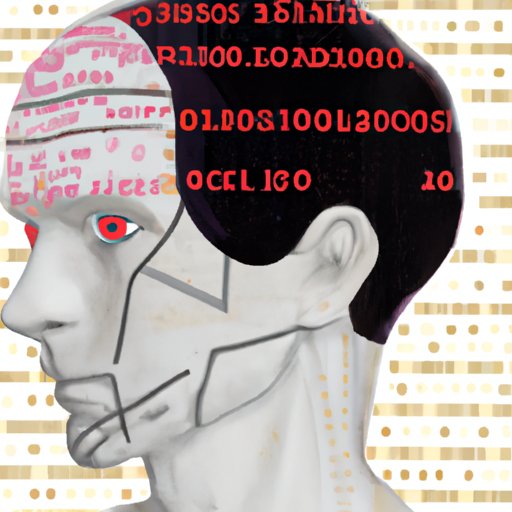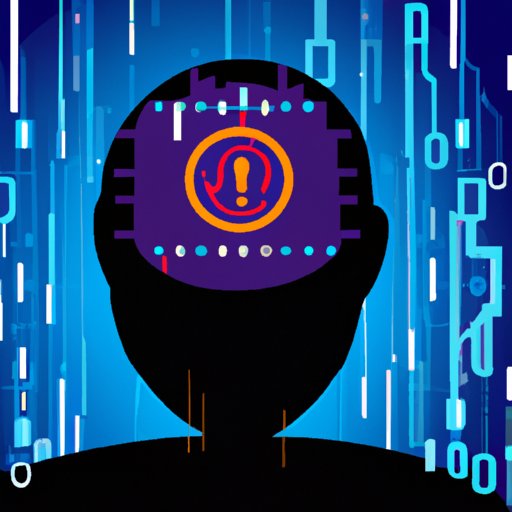Introduction
Artificial intelligence (AI) is a form of technology that enables machines to learn from experience, adjust to new inputs, and perform human-like tasks. While it has many potential benefits, there are also some serious drawbacks to the development and use of AI. In this article, we will explore why artificial intelligence is bad and the potential dangers it could pose to society.
AI’s Impact on Job Loss
One of the major concerns surrounding AI is its potential to cause job loss. As automation and machine learning technologies become more advanced, many jobs that were once done by humans can now be done by machines. According to research from Oxford University, 47% of US jobs are at risk of being replaced by robots or automated processes over the next 20 years.1 This could have devastating effects on the economy and could lead to widespread unemployment.
The loss of jobs due to automation could result in a decrease in wages and an increase in income inequality. In addition, those who lose their jobs may not have the skills needed to transition into other industries, leaving them without any viable options for employment.
Potential for Unregulated Use of Data
Another concern with AI is the potential for unregulated use of data. AI systems rely on large amounts of data to function properly, and this data can be used to make decisions about people’s lives. However, there is often no transparency in how this data is collected and analyzed, and there is a risk that data could be misused or abused.
For example, AI-powered facial recognition software could be used to identify and track individuals without their knowledge or consent. This type of surveillance poses a serious threat to privacy and civil liberties and could lead to discrimination based on race, gender, or other factors.
Lack of Accountability
A further issue with AI is the lack of accountability. Because AI systems are complex and operate autonomously, it can be difficult to assign responsibility for decisions made by the system. If an AI system makes a wrong decision, it may not be clear who should be held responsible.
In addition, AI systems are often opaque, making it difficult to understand why a particular decision was made. This can make it hard to hold AI systems accountable for their decisions, as it is difficult to identify where the fault lies.
Security and Privacy Concerns
AI-powered systems also pose security and privacy concerns. As AI systems become more sophisticated, they are increasingly vulnerable to hacking and other security breaches. This could lead to the unauthorized access of sensitive information, such as financial data or personal details.
In addition, AI systems can collect and store large amounts of data, which could be used to target individuals without their knowledge or consent. This poses a serious risk to user privacy and could lead to the misuse of personal data.

Difficulty in Understanding AI Decisions
Another problem with AI is the difficulty in understanding its decisions. AI systems often use complex algorithms to make decisions, and these algorithms can be difficult to interpret. This means that it can be hard to determine why a particular decision was made, making it difficult to trust the results.
In addition, AI systems can be prone to bias, as they can be influenced by the data used to train them. This can lead to unfair or inaccurate decisions, and it can be hard to identify and address biases in AI systems.

Unintended Consequences of AI Development
Finally, there are also potential unintended consequences of AI development. As AI becomes more powerful and pervasive, it could have unforeseen ethical implications and unexpected social, economic, and political effects.
For example, AI could be used to manipulate public opinion or to control populations. This could lead to a loss of autonomy and freedom, as well as a breakdown in democracy. In addition, AI could lead to increased inequality and a widening gap between the rich and poor.
Conclusion
In conclusion, artificial intelligence has the potential to cause job loss, unregulated use of data, lack of accountability, security and privacy concerns, difficulty in understanding AI decisions, and unintended consequences. These issues must be addressed in order to ensure that AI is developed and used responsibly.
It is important that policymakers, researchers, and members of the public come together to discuss the potential risks of AI and develop strategies to mitigate these risks. Only by doing so can we ensure that AI is used for the benefit of humanity, rather than to its detriment.
(Note: Is this article not meeting your expectations? Do you have knowledge or insights to share? Unlock new opportunities and expand your reach by joining our authors team. Click Registration to join us and share your expertise with our readers.)
